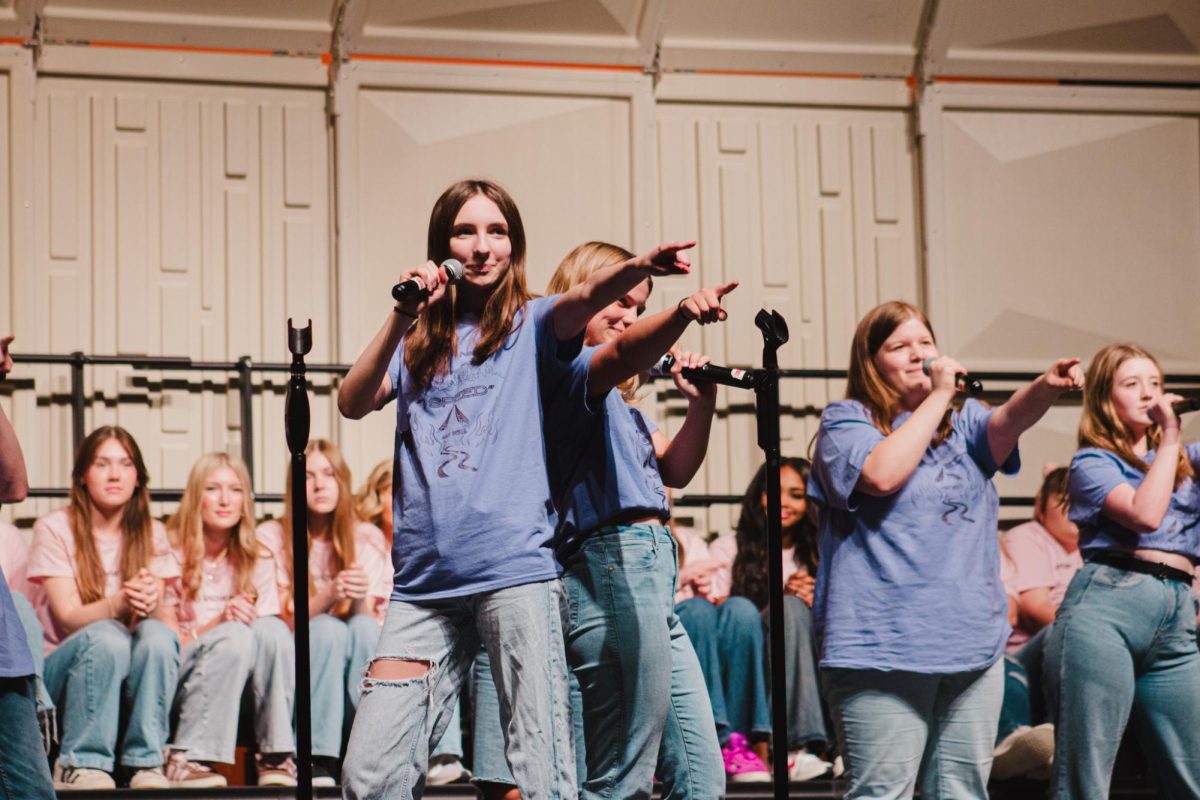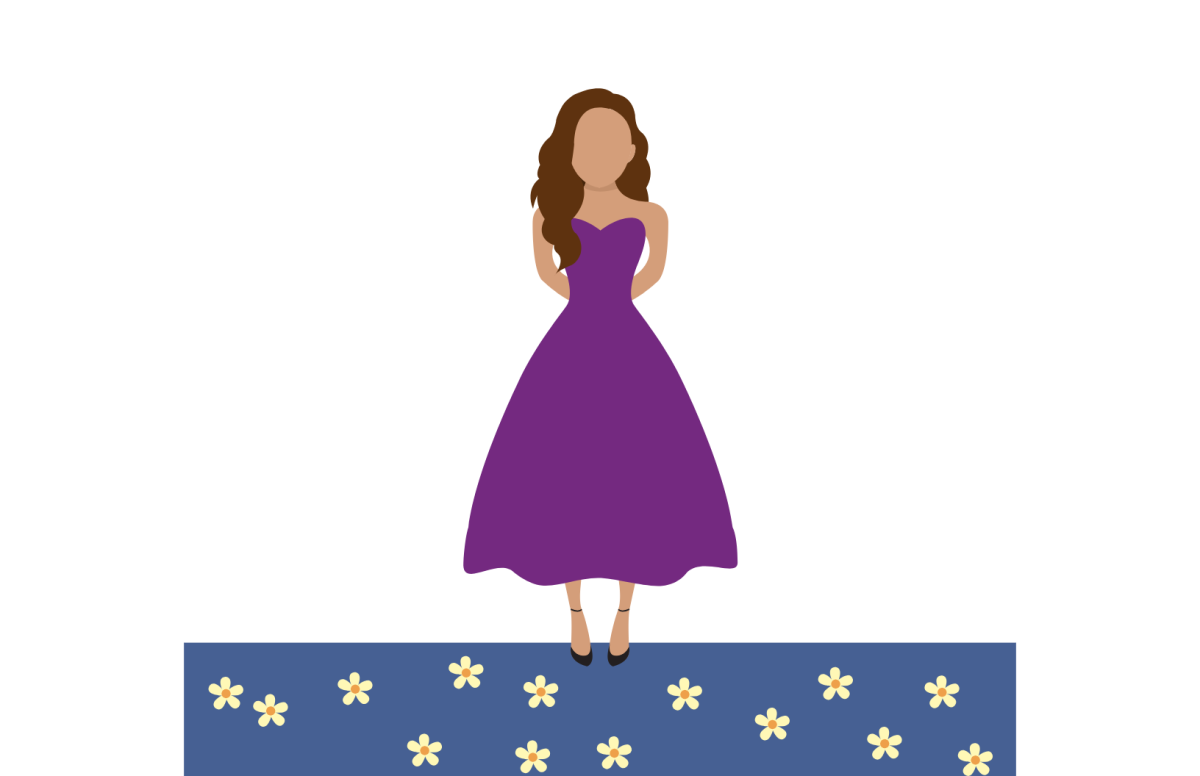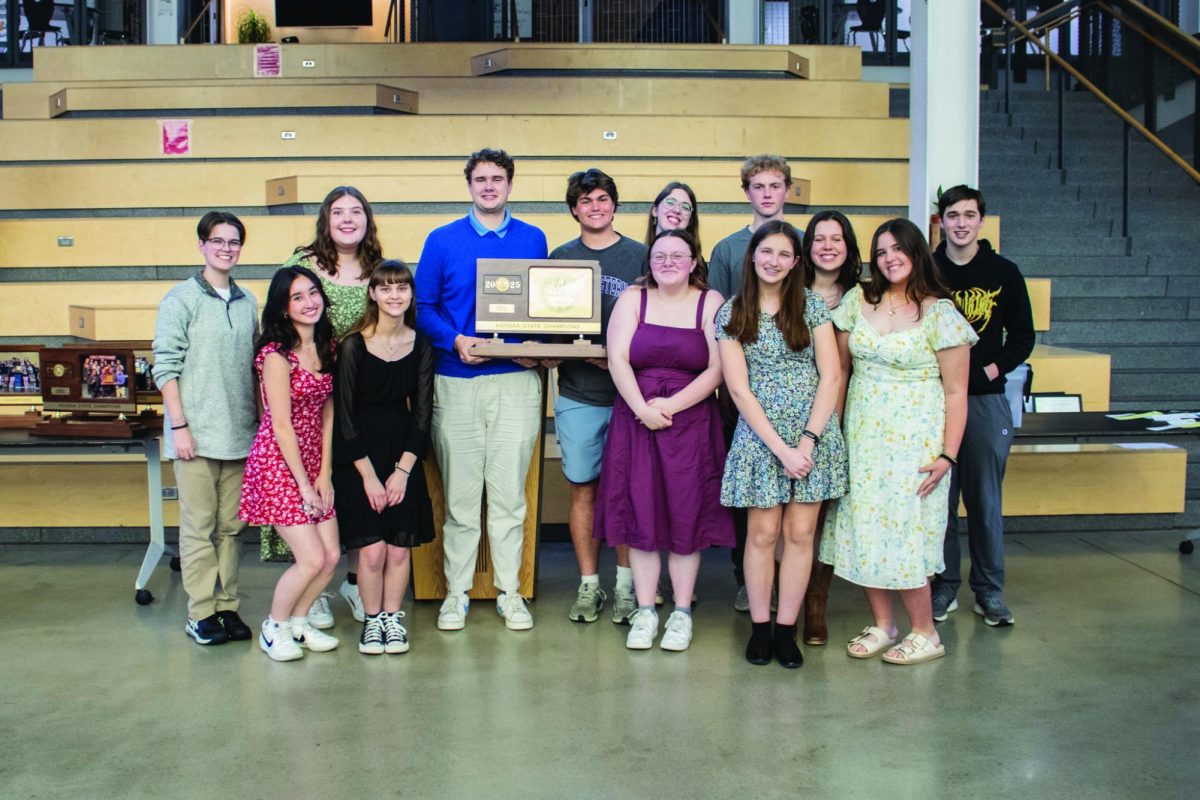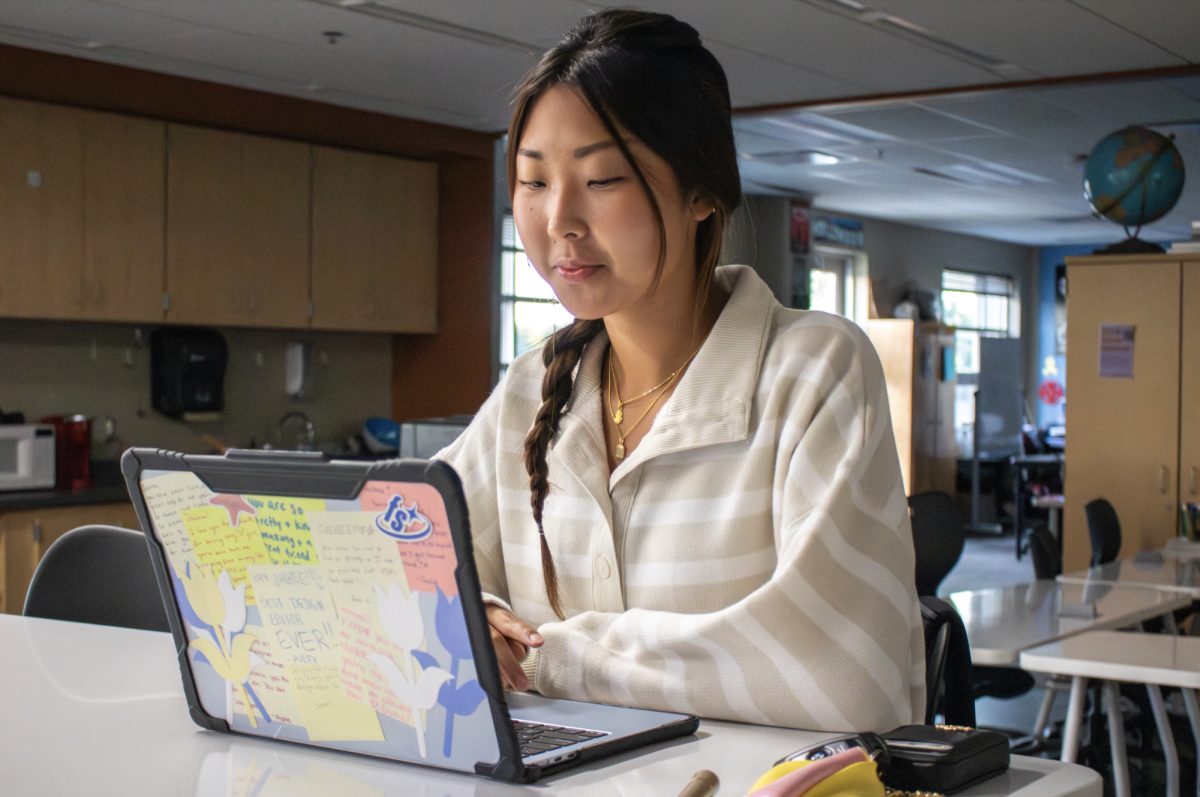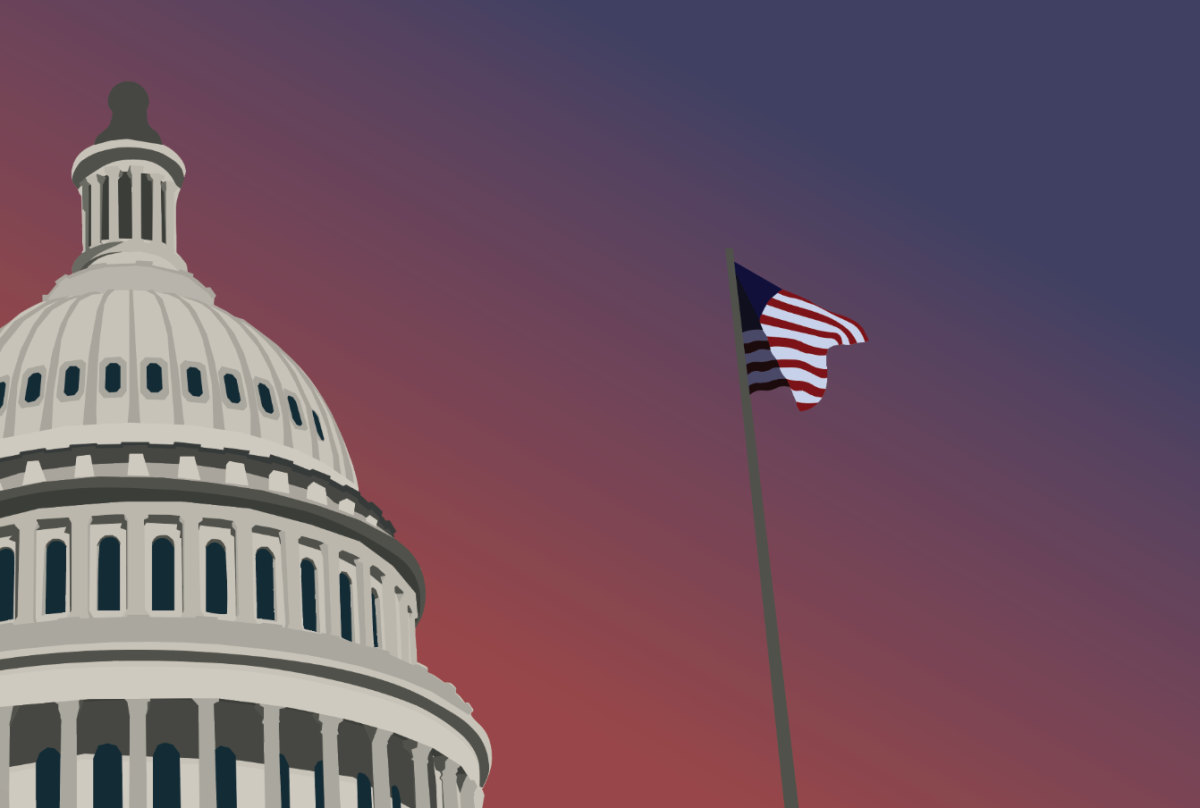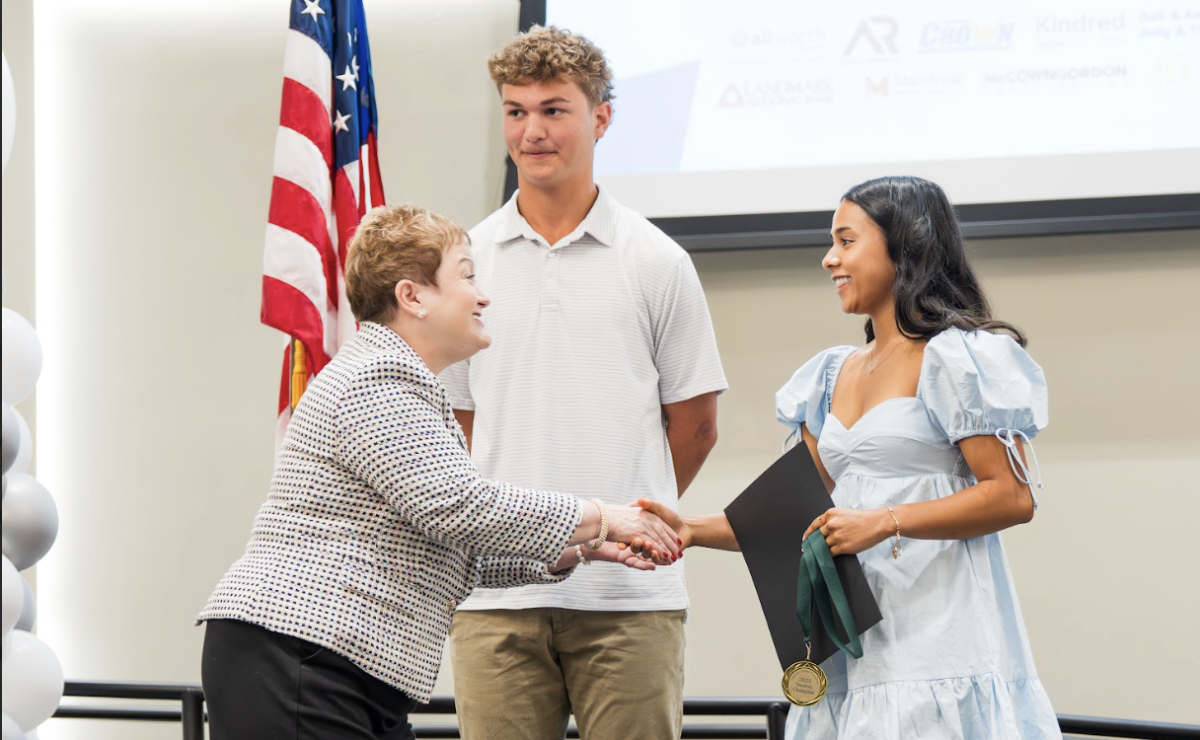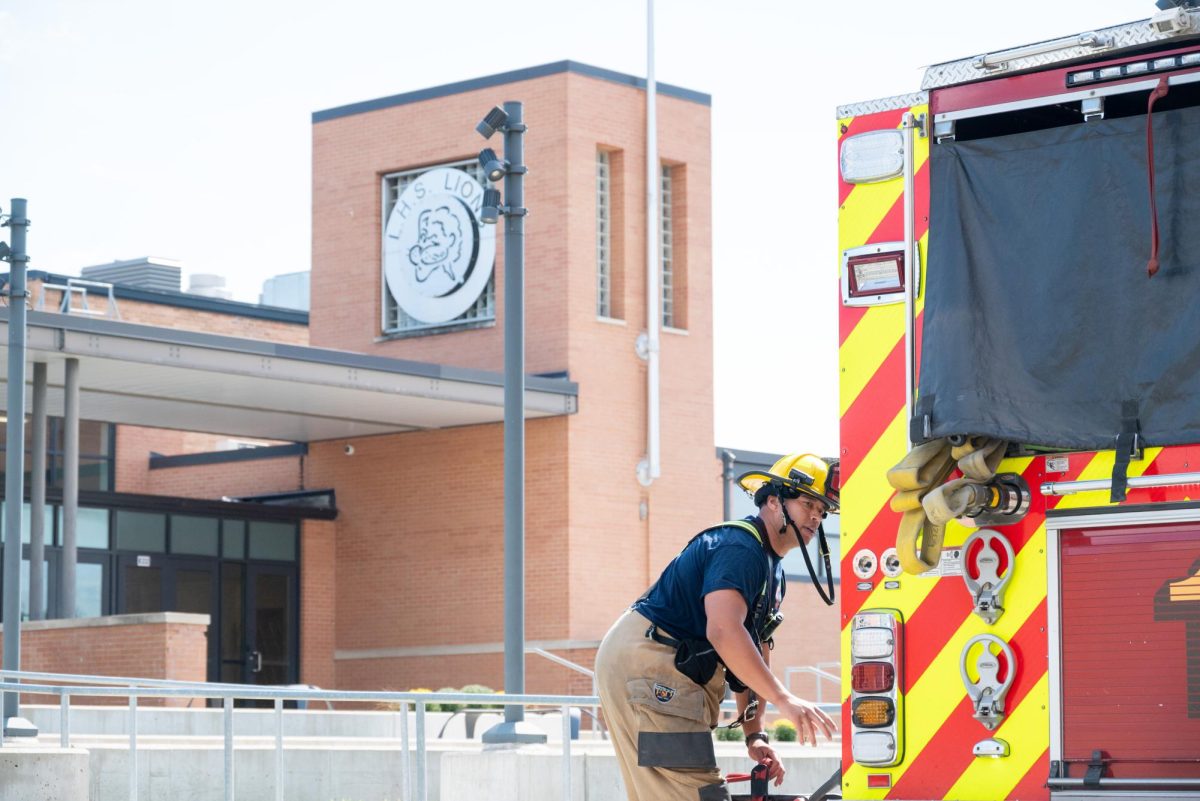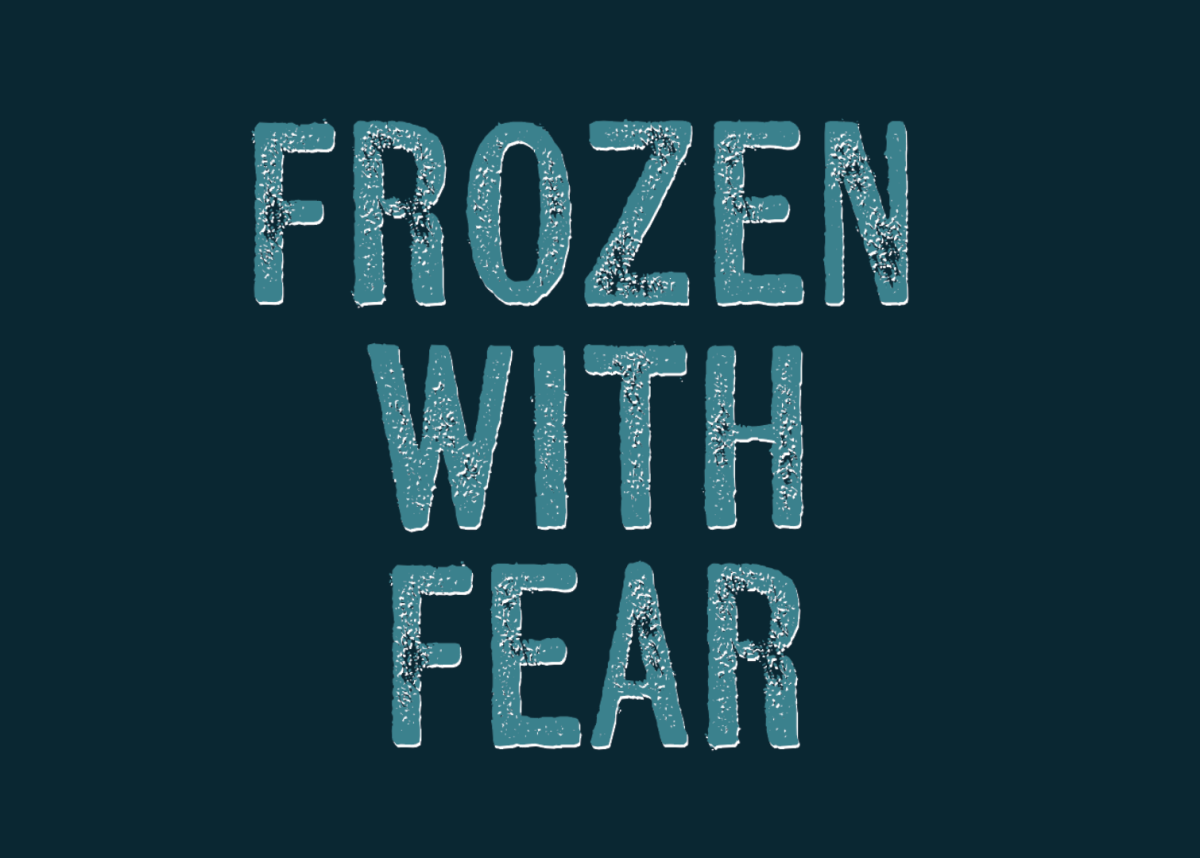Student Frankie Fergus, 15, and his family have relied on the Home and Community Based Technology Assisted Waiver to qualify for Medicaid; however, a recently passed house budget resolution targets $880 billion of federal Medicaid spending over a decade.
Without Medicaid, mother Jane Fergus said Frankie would not be able to survive. At four months old, Frankie was diagnosed with Neurofibromatosis Type 1, and Jane was told he would never be able to talk, walk or live to see his first birthday. Today, Frankie attends the Kansas State School for Blind through Free State High School.
Though the family does not financially qualify for Medicaid, Jane said Home and Community Based Service allows them to receive financial support for Frankie’s everyday necessities such as food, feeding tubes and briefs; funding cuts to Medicaid could potentially cause optional programs such as HCBS to be abolished. According to KFF, 94,000 children will be affected by Medicaid cuts.
“Cuts to Medicaid are life and death for our family. It keeps this population of people from falling through the cracks,” Jane said.
The 2017 Tax Cut and Jobs Act enabled certain individuals to temporarily reduce their taxes; however, this is scheduled to expire in 2025. In reaction, some members of the Republican party have published a budget reconciliation to reduce taxes in future years but in doing so, they would take funding away from federal programs such as Medicaid, Medicare and Society Security.
Because of the TA waiver, Frankie’s full time nurse, Julie Govier, has been able to work side by side with him since he was six months old. Since Govier is paid through Medicaid, the potential cut in funding would end Govier’s work with Frankie.
“Medicaid is just this big umbrella word, but they have all these little things and all different kinds of waivers … It’s not only financial stress, but emotional stress,” Govier said. “Frankie’s my best friend. I don’t think I could mentally, emotionally, go through life without him.”
Jane said that without the HCBS waiver to financially help, Frankie and many other children across the country would likely need to be institutionalized in a hospital. Jane said that one night at Children’s Mercy would cost around $10,000 for Frankie’s treatment and care.
As a registered republican, Govier said she doesn’t agree with the choices the administration has made regarding cuts to Medicaid. Instead of blaming a political party though, Govier said she focuses on what impact the cut would mean for Frankie.
“This isn’t a right or left, Republican, Democrat thing. This is just humanity and how we want to run our country. No matter which way you vote. People don’t want to take services away from the most vulnerable populations,” Govier said.
Since President Donald Trump’s reelection, though, Jane said that she is fearful of what the administration’s second term may mean for her family. Even if it means quitting her job to qualify for financial aid, Jane said she will do anything to save her child’s life; she said focusing her attention on spreading awareness and education has made a huge impact.
“The Trump administration was throwing plan after plan, and that’s when we started getting into advocacy. Honest to goodness, I do not have time and I don’t have energy. But we realized that telling our story had massive impacts, so we actually teamed up with some friends of ours,” Jane said.
Long time family friend Lucinda Crenshaw said that witnessing the Fergus family overcome such struggles throughout Frankies life has shown her just how many people will be affected by the funding cut.
“He is just an example of how indiscriminate cuts can affect people in ways that are not even known, and how that all affects everybody, and not only for the research in medicine advancements for him, but for other kids and people too,” Lucindia said.
Looking toward the future, Crenshaw said she strongly believes that education is the key factor in resolving the Medicaid financial crisis. Crenshaw said that calling Kansas senators, educating peers and recognizing what impacts this decision would create is all vital.
“I hope that people will find out that by using their voice, their pen, or their email, they can make a difference.,” Crenshaw said. “…I hope that people realize that right now, what we’re used to in our democracy, is under threat, and people just need to speak up so it not only helps our nation, but our neighbors and our friends.”







